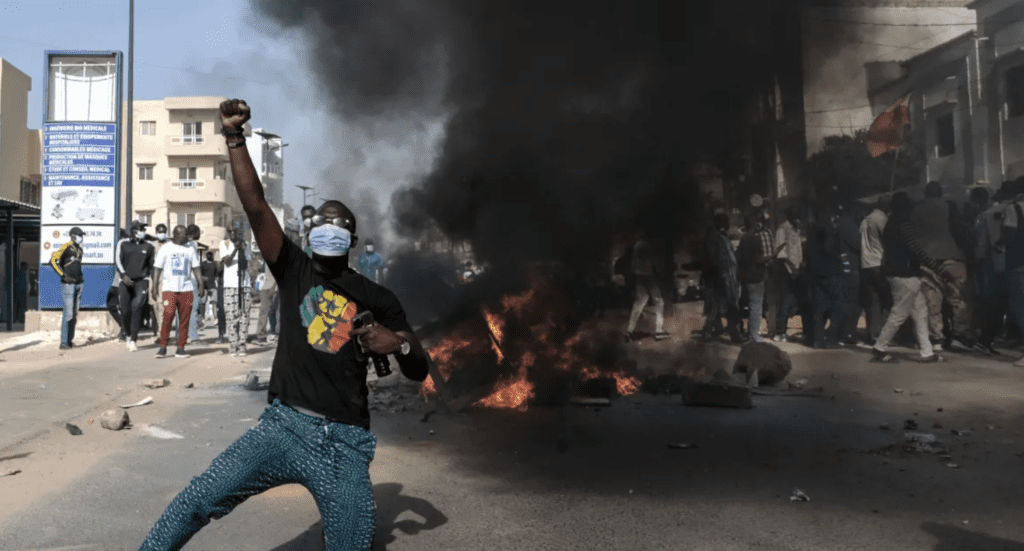Senegal, known for its democratic stability in a tumultuous region, faces turmoil as clashes erupt between protesters and police near the National Assembly.
Lawmakers inside have approved a controversial bill extending President Macky Sall’s term and postponing elections, which were canceled abruptly with only three weeks remaining.
Khalifa Sall, a prominent opponent and former Dakar mayor, denounced the delay as a “constitutional coup” and urged people to protest.
His coalition plans legal action.
Thierno Alassane Sall, another candidate, condemned the move as “treason” and called for demonstrations outside the National Assembly.
The proposal required support from three-fifths of the deputies; it passed with 105 votes.
Originally set for six months, an amendment extended the delay to 10 months.
President Sall reiterated he wouldn’t seek re-election, but critics accuse him of power retention or manipulation of his successor.
Protests erupted immediately in Dakar, challenging Senegal’s reputation as a stable democracy, untouched by military coups, with smooth transitions of power and timely elections.
President Sall has played a crucial role in regional stability, leading efforts for democratic transitions.
However, Senegal’s democratic standing now faces a severe test amid rising tensions and a looming constitutional crisis.
Discontent has simmered for over two years, with opposition parties alleging exclusion through legal maneuvers. The recent postponement only exacerbates the situation.
Access to mobile internet was restricted to curb dissent, drawing criticism from the opposition and concerns of escalating political unrest.
Despite declining satisfaction with democracy under President Sall, a military coup seems unlikely due to Senegal’s diverse political landscape and robust civil society.
Twenty candidates initially contended, but some were excluded by the Constitutional Council, sparking allegations of political bias and judicial corruption.
Opposition leader Ousmane Sonko’s disqualification intensifies tensions, with his party decrying the delay as a threat to democracy.
Previous instances of barring leading opposition candidates from elections have raised suspicions of political motives.
President Sall justifies the delay as necessary to resolve disputes, but critics question his intentions, suspecting a bid to safeguard his party’s electoral prospects.
The international community calls for dialogue and swift elections, but President Sall’s reputation may shield him from significant external pressure.
As Senegal grapples with this democratic crisis, regional blocs and global observers closely monitor the situation, fearing broader instability in West Africa.
Revealed; Names Of 9 Security Companies Whose Operating Licenses Were Canceled By PSRA
